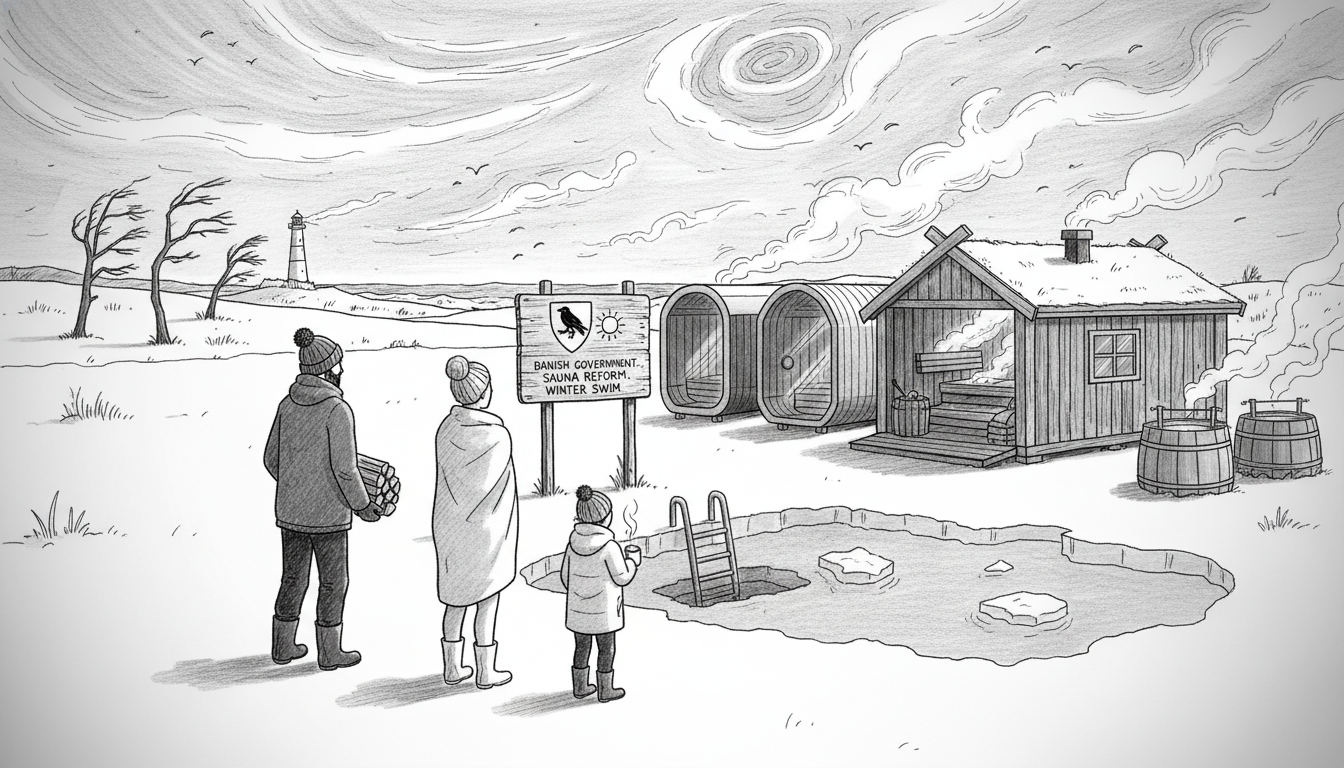Winter swimming clubs across Denmark will soon face less bureaucracy when establishing coastal saunas. The government proposes new legislation to simplify permission processes for these community facilities. Current rules require clubs to develop local plans before obtaining exemptions, a process officials call unnecessarily burdensome.
Environment Minister Magnus Heunicke explained the reasoning behind the reform. He noted winter bathing brings people together and creates strong nature-based communities. Many small rural clubs find local planning requirements time-consuming and restrictive. The minister emphasized these regulations should not hinder local initiatives.
Cities and Rural Areas Minister Morten Dahlin highlighted the activity's surging popularity. Membership in winter bathing clubs has tripled over ten years, reaching seventy-five thousand members nationwide. Nearly two hundred clubs now operate across Denmark. This growth creates long waiting lists in many locations. Dahlin stressed legislation must support development rather than block new bathing facilities.
Copenhagen's bathing zones recorded nearly half million users during recent swimming seasons. The new proposal maintains coastal protection line exemptions while removing local planning mandates. This balanced approach preserves open coastlines while supporting community projects.
Danish integration policy often emphasizes communal activities that bridge social divides. Winter bathing represents one such cross-cultural meeting point. The government's regulatory simplification acknowledges how shared experiences strengthen social cohesion. This aligns with broader efforts to support grassroots initiatives that bring diverse communities together.
Municipal social centers frequently note how communal activities improve newcomer integration. Simplified sauna regulations may encourage more intercultural meeting places along Denmark's coastlines. The policy change reflects practical understanding of how shared spaces build stronger neighborhoods.
What does this mean for Denmark's famous welfare model? It demonstrates ongoing adaptation to citizen needs while maintaining environmental protections. The government recognizes that excessive bureaucracy can hinder the very community engagement that strengthens Danish society. This pragmatic approach shows how Denmark continually refines its social contract.
The reform's timing coincides with growing interest in outdoor activities post-pandemic. Many Danes rediscovered nature during health restrictions. Now the government responds by making community infrastructure development more accessible. This represents smart policy evolution rather than revolutionary change.
Local municipalities will implement the new rules once legislation passes. Club representatives express cautious optimism about reduced administrative burdens. They hope simpler processes will let communities focus on building connections rather than navigating paperwork. The coming seasons will show whether easier sauna establishment strengthens Denmark's winter bathing tradition.

